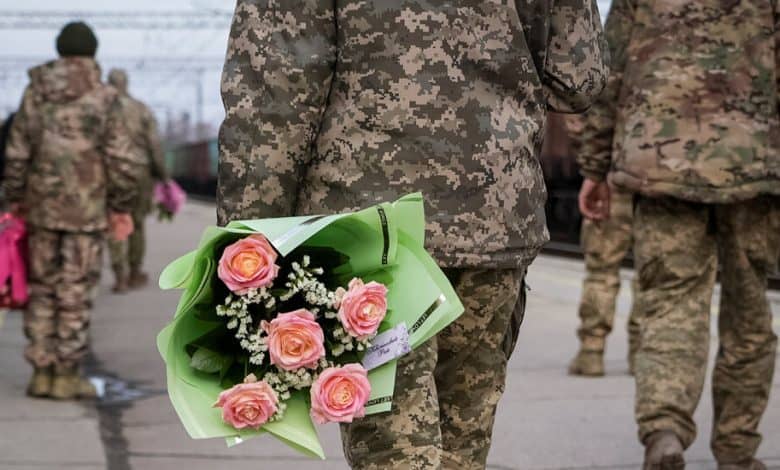We Ukrainians Are Fighting to Be Free

It usually happens in the middle of the night or at dawn. Russians seem to like to kill the defenseless and helpless. They can’t do it at the front — there they have been repelled — so in the middle of the night, they launch missiles at maternity hospitals, high-rise buildings, train stations, metro stations, schools, libraries.
The worst thing during the attacks is the endless messages we send one another. The stupidest of the stupid is the question “How are you?” That question flies above Kyiv, Odesa, Kherson, Dnipro, gathering replies. “It fell close.” “I see a fire.” “We are fine but it is burning somewhere here.” “The house across from us is no more.” “The smell of death, my Anya said it smells like death.” Yet there is no alternative. It is a question that, for all its ridiculousness, cannot be left unanswered. Silence means misfortune and death.
We, the people of a decade of war, are used to those. The world is talking of a second anniversary. Wrong: The war has not been two years but 10, from when Russian forces annexed Crimea and invaded the Donbas. Calling it an anniversary isn’t quite right, either. In Ukrainian, the period of time equivalent to a year is defined by two words: “richnytsia” (anniversary) and “rokovyny” (commemoration). “Rokovyny” often refers to memorial services, while“richnytsia”pertains more to celebrating life. So much sorrow has settled in our memory and calendars that everything is a memorial now.
Yet despite all the “rokovyny” in Ukraine across the centuries — the Baturyn massacre in the 18th century and the Valuev and Ems decrees in the 19th century, the executions in Bykivnia and Sandarmokh and the Holodomor under Soviet rule, the murder of the Heavenly Hundred in 2014 and the recent devastation of Bucha, Bakhmut and the Kakhovka dam — we’re still here. We are still fighting for “richnytsias,” for anniversaries and jubilees of our victory.
In these most recent years of war, a lot has changed. In Mariupol, there was a community center called Halabuda — a place where Japanese and computer literacy were taught, where book launches and concerts were held, where people learned to be businessmen and proactive citizens, where they painted, sang and developed projects for an environmentally friendly city. After a brutal monthslong siege led to the Russian capture of the city in the spring of 2022, Halabuda had to relocate. Today in Cherkasy, a city in central Ukraine, it’s where people repair drones.
There’s so much more left unrealized. More destinies that played out as heroic in war, but whose bearers can no longer do the things they may have been fated to: write books, open restaurants or discover a cure for Alzheimer’s disease. Their smiles now exist only in photographs.
